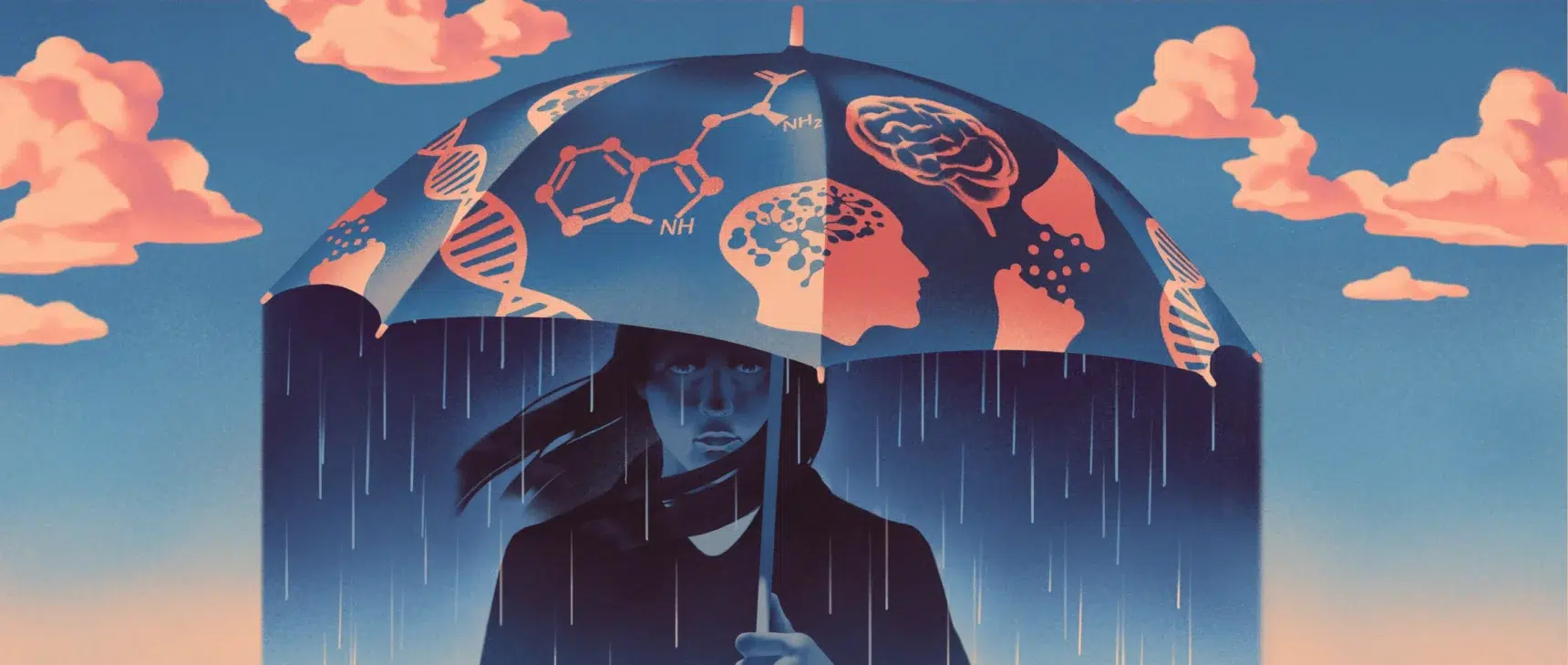Depression as a symptom of deeply suppressed emotions
Depression is a state that often comes as a result of long-standing, suppressed anger. Sadness, as an emotion, has its natural function in the process of emotional recovery. When we experience loss, disappointment or deep sadness, sadness allows us to connect with what we have lost, to reflect on our feelings and ultimately to free ourselves from the emotional burden. However, if we do not process the grief and allow it to develop naturally, it can become deeply rooted in us and turn into depression. People learn to suppress their feelings for various reasons – perhaps because of the fear of being considered weak, because of learned social norms or because they believe that expressing emotions is a sign of weakness. When we do not allow ourselves to grieve, we prevent the natural process of emotional healing. Grief does not go away, but accumulates, becoming heavier and heavier and eventually turning into a feeling of hopelessness and emptiness – characteristic symptoms of depression.
It is interesting to note that grief, when suppressed, can have a protective layer in the form of anger. Resentment is often an emotion that allows us to feel in control in situations in which we feel helpless. Instead of dealing with the hurt and pain that resentment brings with it, resentment can become a way of protecting oneself from that pain. However, this anger is not always conscious and is often directed towards the inner or outer world, in a way that further increases the feeling of isolation and worthlessness.
The Quiet Grief of Never Feeling Truly Seen
Kada je tuga maskirana ljutnjom, osoba može postati zatvorena za komunikaciju sa sobom i drugima. Ljutnja prikriva pravu prirodu problema – duboko ukorjenjenu tugu koja vapi za priznanjem i izražavanjem. This internal struggle, between suppressed anger and expressed anger, can be extremely exhausting, leading to even more feelings of helplessness and depression.
Recovery from depression can begin as soon as the state of distress is recognized and accepted. It takes courage to deal with negative feelings, to recognize and express them, whether through conversation, writing or some other form of creative expression. In this process, it is important to allow yourself to feel the pain, to experience it and ultimately to let it go.
Grief, if present, can be a cause of bottled up anger. Instead of judging it or pushing it down, we can ask ourselves: what is it that is actually hurting us? What is it that we have lost and have not allowed ourselves to experience? When we recognize the source of our distress, we can begin to free ourselves from depression. Anger can then become less intense because its underlying cause – suppressed grief – has been recognized and accepted.
The process of recovery from depression is not a quick one, but it begins with the realization that depression is not just a state of despair, but often has a dual emotional root in unexpressed grief. Dealing with one’s emotions, however sick one may be, can be the first step towards feeling joy in life and inner peace again. Grief makes us think about loss, but it also gives us the opportunity to grow and transform through the grieving process. By recognizing and accepting the pain, we begin the path to a true cure.
Keywords: Depression as a symptom of deeply suppressed emotions, depression, somatic experiencing therapy, psychotherapist zagreb, gestalt therapy, Licensed therapist near me in Manhattan NYC, Affordable therapy services in New York State, Holistic psychotherapy sessions in NYC, Somatic Experiencing therapy for trauma recovery in New York City, NARM therapy in Brooklyn, Licensed couples therapy in Manhattan, Gestalt therapy near me in NYC, Marriage counseling in Queens NYC, Therapy for anxiety treatment in NYC, Experienced psychotherapist in New York, Licensed psychotherapist near me in NYC, Somatic Experiencing therapy sessions in New York, Trauma therapy and counseling in Manhattan, Gestalt therapy sessions in New York City, Therapy sessions for emotional regulation in New York, Trauma therapy near me in Brooklyn New York, Licensed mental health therapist in Manhattan NYC, Depression therapy in New York, New York City therapist experienced in PTSD treatment
*Photo: GettyImages
*Contact: Dogovori termin
*For companies: https://creativemanager.eu
When You Confuse Peace with Boredom








